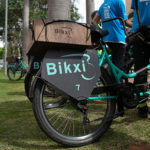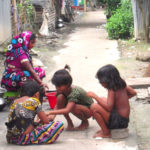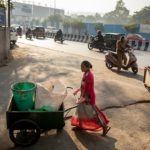
Innovation and government don’t always go hand in hand. Yet the opportunity for innovation in the mobility sector has never been so ripe. Companies all over the world are creating and deploying the next generation of disruptive transport solutions, from ...


Cities can choose how they grow by directing investment and policies in specific ways. Those cities that have more upward growth relative to outward growth, for example, are better able to provide services and opportunities to their residents because development ...


Warwick Junction is a finalist for the WRI Ross Prize for Cities. Warwick Junction’s maze of stalls, arches and bridges can elicit wonder in any first-time visitor to South Africa’s largest marketplace. The area’s nine distinct markets are wedged between ...


SARSAI is a finalist for the WRI Ross Prize for Cities. Chaos often reigns on the streets of Dar es Salaam, Tanzania’s capital. Minivans, cars and motorcycles careen along half-finished roads without markings, sidewalks or traffic lights. Pedestrians walk ...


When Rani, a mother of five in Khulna, Bangladesh, found that the tea stall outside her home kept flooding, she didn’t wait for a government climate resilience program to swoop in. Like many people in urban communities facing the effects ...


Eskişehir Urban Development Project is a finalist for the WRI Ross Prize for Cities. Many cities are looking for a new future after the decline of traditional manufacturing industries. From the American Rust Belt to Europe’s industrial heartlands, mayors are ...


When a city decides to transition from fossil fuels to clean energy, headlines follow. But the work has only just begun. Cities have many options for generating and purchasing renewable electricity, each of which comes with distinct benefits and challenges. ...


Closing more than 60 kilometers of major streets to car traffic sounds like a logistical headache for a city of 4.8 million. But Guadalajara did it anyway ‒ and has done it every Sunday for the last 15 years. In ...


SWaCH is a finalist for the WRI Ross Prize for Cities. Pinky Sonawane spent her childhood gathering garbage on the streets of Pune, India. She’d join her mother in pulling plastic bottles, cans and cardboard from roadside dumpsters, selling ...


Cities in the global south today face a complex challenge: like all cities, they need to reduce carbon emissions, but they also need to expand access to energy. Around the world, 1.1 billion people currently lack access to electric cooling ...

Page 47 of 337« First...1020...464748...5060...Last »